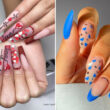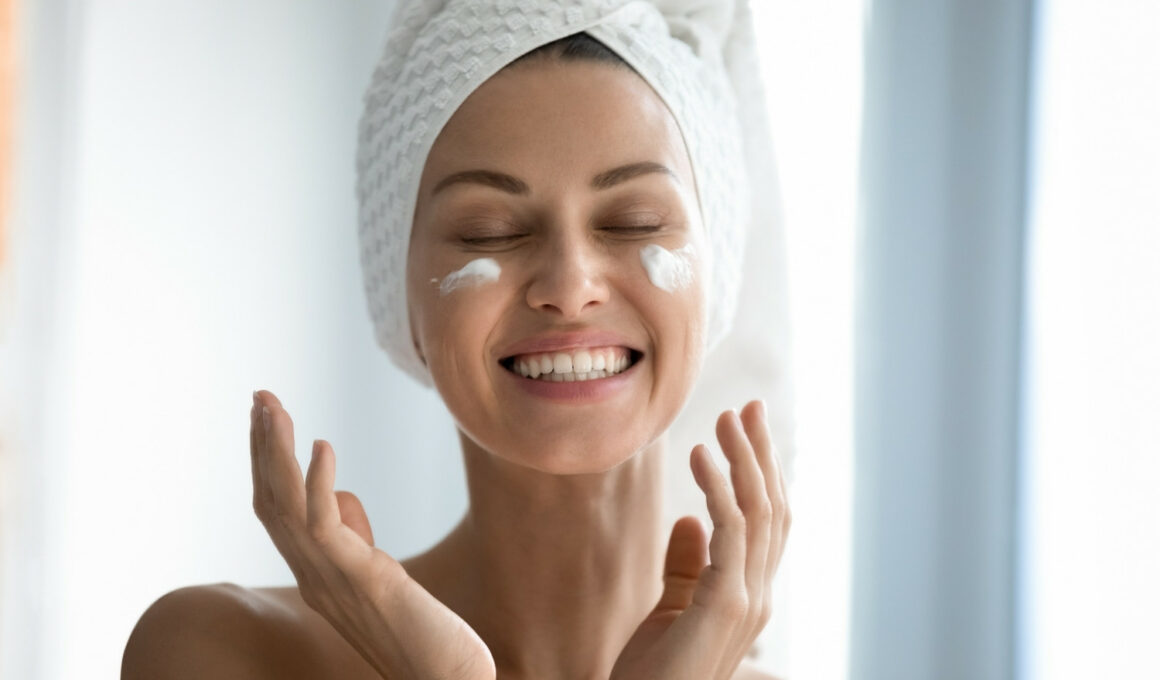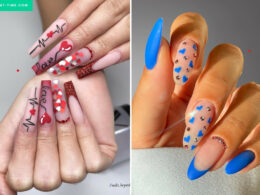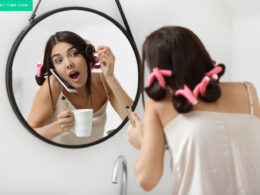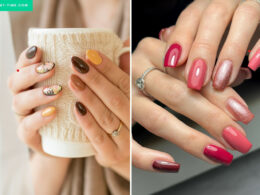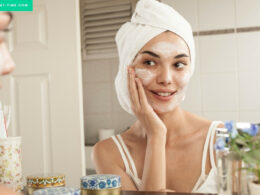In This Article Show
As a mom of three, I understand the daily juggle of parenting, and amidst the chaos, it’s easy to overlook our skin’s needs.
However, fear not, because today we’re embarking on a journey to uncover the dermatologist-approved secrets to radiant and healthy skin. No frills, just practical advice that fits seamlessly into your hectic life.
In this no-nonsense guide, we’re focusing on ”18 Dermatologist-Recommended Skin Care Tips.” Let’s cut through the skincare clutter and get straight to the heart of what your skin needs.
18 Dermatologist-Recommended Skin Care Tips
So, whether you’re managing tantrums, shuttling kids to school, or tackling that never-ending laundry pile, we’ve got your back. Healthy, glowing skin is within reach, and I’m excited to share these straightforward dermatologist-backed tips that I’ve personally found to be game-changers in my own busy life.
1. Daily Skincare Routine
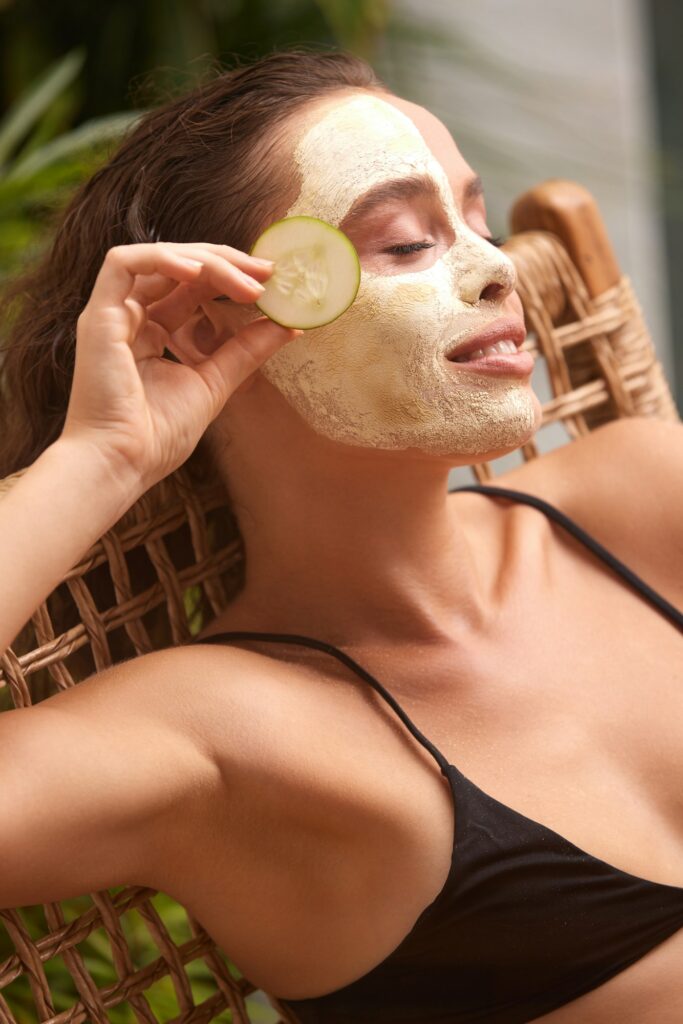
Consistency is key when it comes to achieving and maintaining healthy, radiant skin. In the hustle and bustle of parenting, establishing a daily skincare routine might seem like a luxury you can’t afford, but trust me, it’s a small investment with significant returns.
Skincare is not a one-time fix; it’s an ongoing commitment to your skin’s well-being. Just as we consistently care for our children, our skin deserves the same level of attention.
Great deals to snatch for your little ones 🎉
Also, by keeping it simple and sticking to this routine, you’re not just caring for your skin; you’re creating a self-care habit that seamlessly integrates into your daily life.
2. Sun Protection
In the realm of skincare, if there’s one golden rule that every dermatologist swears by, it’s the consistent use of sunscreen. Sunscreen isn’t just a summer accessory; it’s your skin’s knight in shining armor, shielding it from the relentless and often underestimated damage caused by the sun.
Sunscreen acts as an invisible shield, protecting your skin from the harmful effects of ultraviolet (UV) rays emitted by the sun.
So, select a sunscreen with a Sun Protection Factor (SPF) of at least 30 for daily use.
Higher SPF provides more protection, especially during extended sun exposure.
3. Hydration

In the daily chaos of parenting, staying hydrated often takes a back seat amidst the myriad responsibilities. However, the impact of hydration on your skin’s health is profound and cannot be overlooked.
Adequate hydration is crucial for maintaining the elasticity of your skin. Note that well-hydrated skin is less prone to dryness, flakiness, and the development of fine lines.
4. Healthy Diet for Healthy Skin
What you eat directly influences your skin’s health. A balanced diet rich in antioxidants, vitamins, and minerals helps your skin elasticity and firmness, Also, food rich in antioxidants combat oxidative stress, reducing signs of aging.
Remember, a healthy diet isn’t just for your body; it’s a recipe for glowing, resilient skin.
5. Sleep and Skin

In the hustle of parenting, a good night’s sleep can feel like a rare luxury. Yet, the link between quality sleep and skin rejuvenation is undeniable. During deep sleep, the body repairs and regenerates skin cells.
Consistent, quality sleep is your best defense against premature aging.
As parents, it’s a challenging balance, but prioritizing sleep reaps benefits not only for your well-being but also for your skin’s health.
6. Stress Management
Parenting often comes with its fair share of stress, and its impact on your skin is more than skin-deep. Stress triggers the release of cortisol, leading to increased oil production and potential breakouts.
Finding effective stress management techniques, whether it’s deep breathing, meditation, or a quick walk, not only benefits your mental health but also nurtures your skin from the inside out.
7. Choosing the Right Products
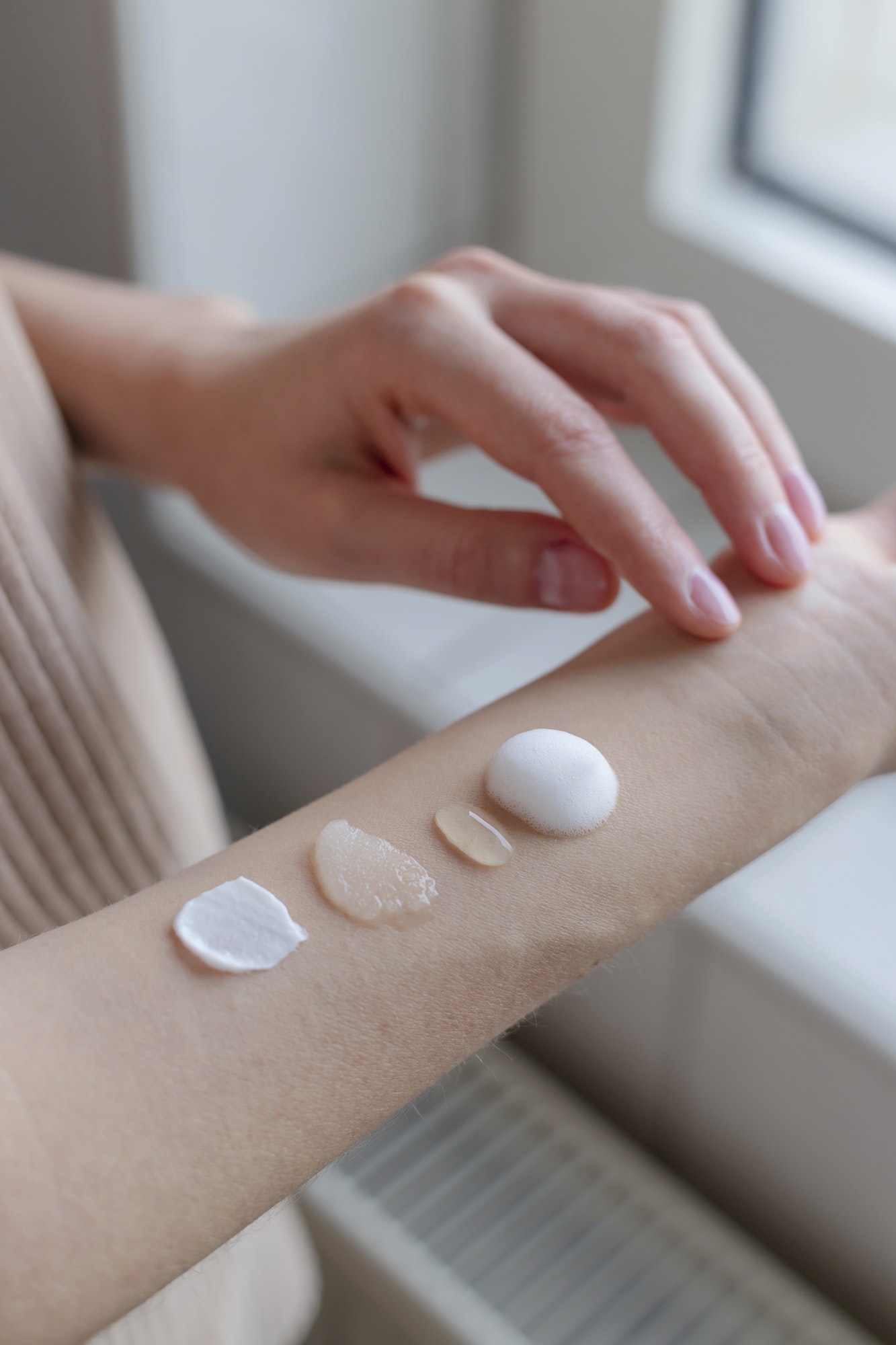
In the world of skincare, one size does not fit all, each skin type has unique needs; understanding yours ensures targeted care. Also using products not suited to your skin type may lead to irritation and breakouts.
Knowing your skin type lays the foundation for a skincare routine that caters specifically to your skin’s needs.
8. Exfoliation
Unlock the radiant potential of your skin with exfoliation. By exfoliating, you will be clearing debris while also preventing breakouts and minimizing pore size.
Regular exfoliation stimulates cell turnover, supporting a youthful complexion.
Incorporate exfoliation into your routine for a quick, effective boost to your skin’s health.
9. Skincare for Different Ages
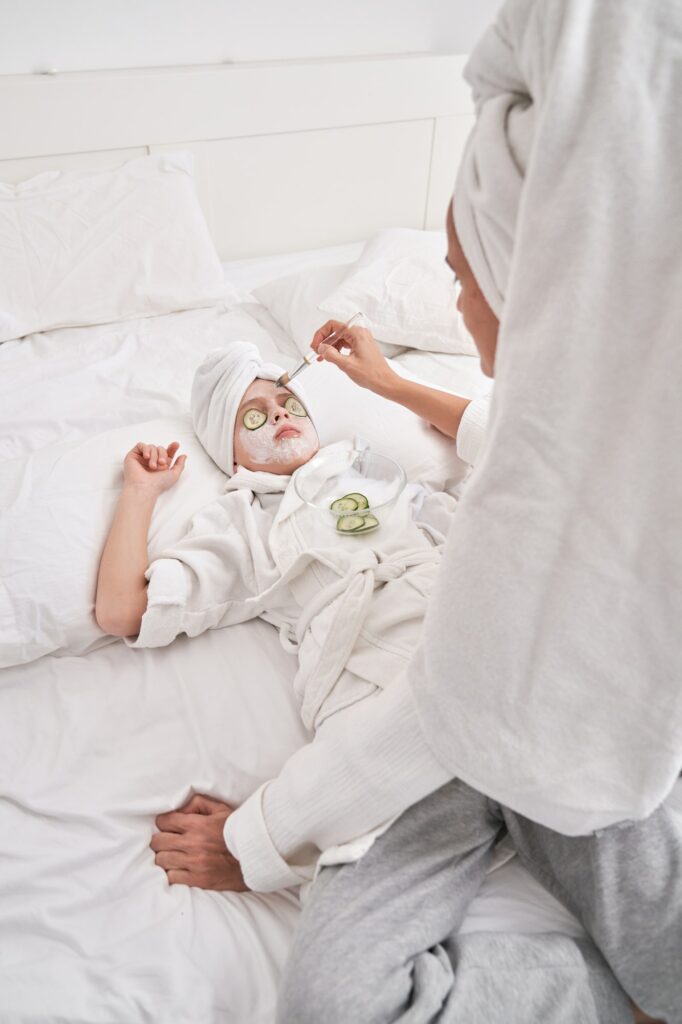
As our skin evolves, so should our skincare routines. Hence, you have to tailor your approach based on age-specific concerns. Adapting your skincare routine to your age ensures you’re addressing specific needs at each life stage.
10. Importance of Professional Consultation
In the maze of skincare advice, the compass guiding you to healthy skin is a regular visit to a dermatologist. Dermatologists provide tailored advice based on your unique skin type and concerns.
Be vigilant about ingredients like fragrances, preservatives, and certain chemicals.
Allergies can develop over time, so stay vigilant even with familiar products.
11. Allergy Awareness

Familiarize yourself with ingredient lists, and avoid products containing known allergens. If you suspect an allergy, consult with a dermatologist for professional guidance.
Prioritizing allergy awareness safeguards your skin against potential irritants, ensuring your skincare routine promotes health without the risk of adverse reactions.
12. Hands and Nails Care
In the whirlwind of parenting, your hands and nails often bear the brunt of daily tasks. A well-groomed hands and nails leave a positive impression, a simple form of self-care. Also, nails can harbor bacteria; regular cleaning helps prevent infections.
A simple hand massage or manicure can be a quick, rejuvenating break in a hectic day. Nurturing your hands and nails is not just cosmetic; it’s a practical form of self-love in your busy life.
13. Acne Management
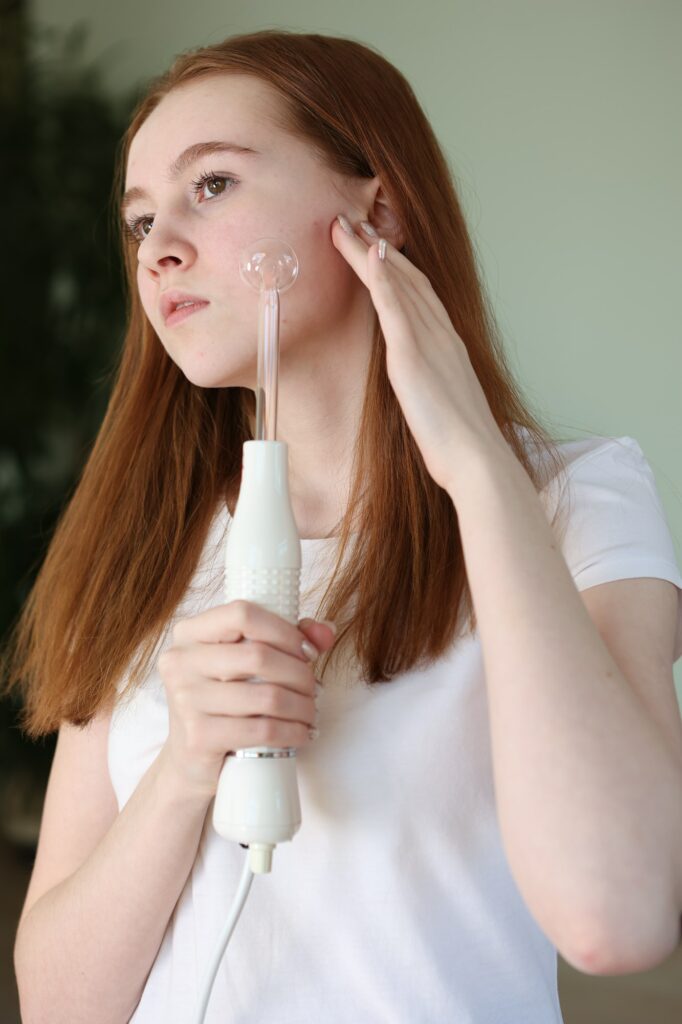
Acne can be an unwelcome companion at any stage of life, but with dermatologist-approved strategies, you can effectively prevent and manage breakouts.
- Use a mild cleanser to avoid stripping the skin’s natural oils, preventing overproduction.
- Opt for skincare and makeup labeled as non-comedogenic to prevent pore clogging.
- Moisturize even if you have oily skin; dehydration can lead to increased oil production.
- Look for products with ingredients like salicylic acid or benzoyl peroxide for targeted treatment.
Remember, acne management is not a one-size-fits-all journey. What works for one person may not work for another. Dermatologists can provide tailored solutions to address your unique skin needs and help you achieve clearer, healthier skin.
14. Anti-Aging Tips
As we navigate the journey of parenting, maintaining youthful and vibrant skin is a common goal. Dermatologists offer these anti-aging skincare practices to keep your skin looking its best.
- Sunscreen remains your best defense against premature aging. Use it daily, rain or shine.
- Incorporate retinoids into your routine to stimulate collagen production and reduce fine lines.
- Serums containing antioxidants like vitamin C combat free radicals, preventing oxidative stress.
- Moisturize with products rich in hyaluronic acid to maintain skin plumpness and elasticity.
- Gentle exfoliation promotes cell turnover, revealing fresh, radiant skin.
15. Skincare and Hormones

In the intricate dance of hormones, our skin often takes center stage. Understanding their impact is crucial for effective skincare.
Hormonal changes during puberty often lead to increased oil production, contributing to acne. So, understanding your skin’s relationship with hormones allows for targeted care, and adapting your routine to the ever-changing hormonal landscape.
16. Environmental Factors
Our skin is not just a reflection of our internal well-being but also a mirror reflecting the impact of external elements. Environmental pollutants can accelerate aging by generating free radicals.
By acknowledging and adapting to these external influences, you’re taking proactive steps to shield your skin from potential harm.
17. Body Skincare
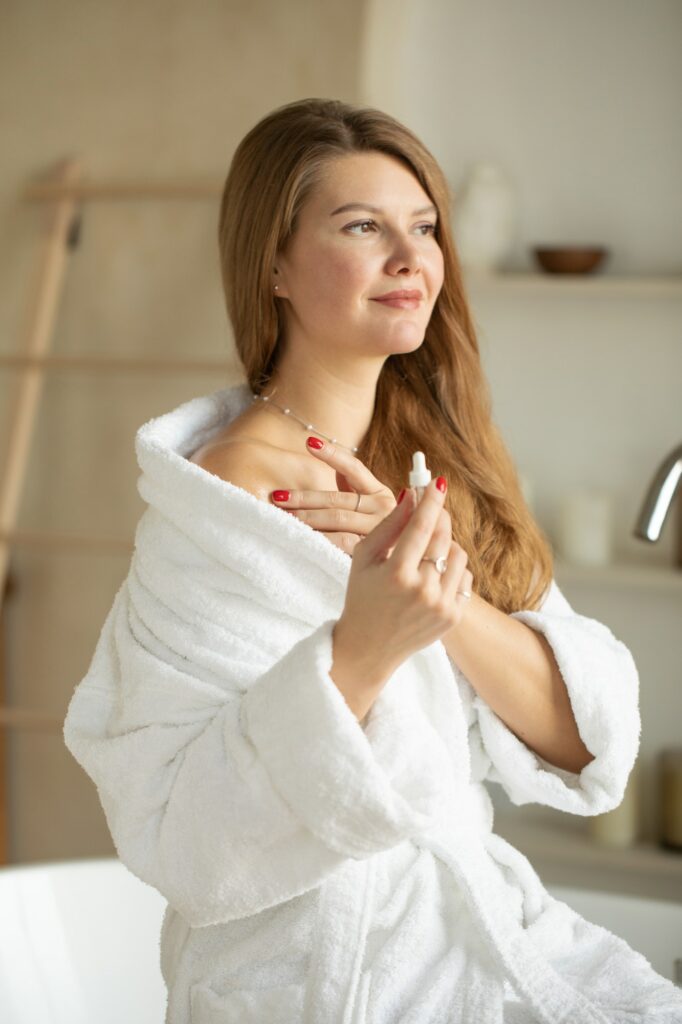
In the grand symphony of self-care, don’t forget to let your skincare routine play harmoniously from head to toe. Extending your care beyond the face ensures your entire canvas is a testament to health and vitality.
Use a gentle body wash or soap to cleanse your skin. Opt for moisturizing formulas to prevent dryness.
Just as your face needs moisture, so does the rest of your body. Apply a nourishing body lotion or cream to keep your skin supple. Your skin is an entire ecosystem, and each part deserves attention. Nurturing your body’s skin is an integral part of holistic self-care.
18. DIY Skincare Caution
In the age of information, DIY skincare trends abound, promising miracles from ingredients in your kitchen. However, it’s essential to approach these with caution. This is because natural doesn’t mean risk-free. DIY ingredients can trigger allergies or irritate sensitive skin.
Homemade concoctions also lack stability and preservatives, increasing the risk of bacterial contamination.
While the allure of DIY skincare is understandable, it’s crucial to prioritize safety and efficacy. Your skin deserves expert care, and consulting professionals ensures you’re making choices that benefit rather than harm your skin.


